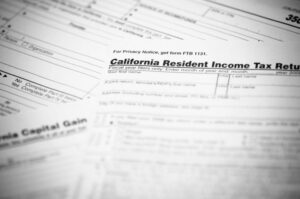Understanding real-world accounting fraud cases provides invaluable lessons for current and aspiring CPAs. These examples illustrate how fraudulent schemes evolve, the warning signs that signal their presence, and the professional standards that help prevent them. This comprehensive analysis examines 13 significant fraud cases, offering critical insights for accounting professionals.
According to the Association of Certified Fraud Examiners, organizations lose an average of 5% of annual revenues to fraud, making fraud detection and prevention essential skills for modern accounting professionals.
The Critical Role of Fraud Detection in Modern Accounting
Financial fraud represents one of the most significant challenges facing the accounting profession today. The FBI estimates that insurance fraud alone costs approximately $40 billion annually, while numerous smaller schemes remain undetected. For internal auditors and forensic accountants, understanding these cases provides essential insights into fraud detection and prevention methodologies.
The evolution of fraud schemes reflects technological advancement and regulatory changes. While names like Bernie Madoff and Charles Ponzi dominate headlines, the most instructive cases often involve lesser-known but equally sophisticated schemes. These cases demonstrate how professional skepticism, rigorous internal controls, and ethical standards serve as the first line of defense against financial fraud.
Professional Framework for Understanding Fraud
Case Studies in Accounting Fraud: Professional Analysis
1. The Florida Psychedelics Venture: When CPAs Navigate Emerging Industries

The intersection of traditional accounting practices with emerging industries presents unique challenges. A Florida CPA’s venture into psychedelics industry investments through Iter Investments demonstrates the complexity of maintaining professional standards while exploring new business frontiers. This case underscores the importance of comprehending regulatory frameworks across various jurisdictions and industries.
Professional Lessons:
- Due diligence requirements extend beyond traditional financial metrics
- Regulatory compliance varies significantly across emerging industries
- Professional independence must be maintained regardless of industry
- Risk assessment procedures require adaptation for novel business models
2. Arizona Cannabis Industry: Navigating Federal and State Regulatory Conflicts

When Arizona legalized recreational marijuana, creating a potential $375 million market, CPAs in Arizona faced unprecedented challenges. The conflict between state authorization and federal prohibition creates unique risks for accounting professionals serving cannabis businesses.
Key Compliance Considerations:
- Federal tax code Section 280E implications
- Banking and financial reporting restrictions
- Professional liability insurance limitations
- State board guidance versus federal enforcement risks
3. California Franchise Tax Board: Interstate Tax Compliance Complexities

The Blair Bindley case illustrates how state tax authorities can assert jurisdiction over out-of-state contractors. This Arizona screenwriter discovered that selling work to California-based companies triggered filing requirements and tax obligations in California, despite never working or residing in the state.
Interstate Tax Planning Insights:
- Economic nexus rules extend beyond physical presence
- State sourcing rules vary significantly
- Failure to file penalties can exceed tax liability
- Professional guidance is essential for multi-state operations
This complexity creates significant opportunities for California CPAs specializing in multi-state tax compliance, particularly given California’s aggressive enforcement stance.
4. Colorado Log Home Tax Evasion: The $2 Million Fraud Scheme

Lawrence Birk’s Tarryall River Log Homes case demonstrates how sophisticated tax evasion schemes can span multiple years. With eight years of delinquent returns and $400,000 in hidden distributions, this case underscores the importance of professional skepticism and thorough documentation review.
Red Flags Identified:
- Extended non-filing periods
- Concealed business distributions
- Attempts to retroactively correct returns while hiding income
- Lifestyle inconsistent with reported income
5. Connecticut COVID Relief: Unintended Tax Consequences of Charitable Work

Teacher Louis Goffinet’s $16,000 tax bill for pandemic relief efforts illustrates the importance of proper nonprofit structuring. His Facebook fundraising efforts, while admirable, created unexpected tax liabilities due to an improper organizational structure.
Nonprofit Compliance Essentials:
- 501(c)(3) formation before fundraising
- Proper documentation of charitable activities
- Segregation of personal and charitable funds
- Contemporary written acknowledgments for donors
6. Hawaii Office of Hawaiian Affairs: Breach of Sacred Trust

Paul Harleman’s scheme to defraud the Office of Hawaiian Affairs through payroll manipulation and Bitcoin conversion represents a serious breach of fiduciary duty. This case highlights vulnerabilities in government accounting systems and the importance of internal controls.
Internal Control Weaknesses Exploited:
- Inadequate segregation of duties
- Insufficient oversight of vendor payments
- Lack of regular account reconciliations
- Cryptocurrency conversion attempts to hide fraud
7. Kansas E-commerce Tax Avoidance: Digital Economy Compliance

Kansas’s discovery of tax avoidance through coupon sites like Groupon reveals evolving compliance challenges in the digital economy. Retailers unknowingly created tax liabilities through third-party platform transactions.
Digital Commerce Tax Considerations:
- Third-party platform reporting requirements
- Gross versus net revenue recognition
- Multi-party transaction documentation
- Evolving state guidance on digital transactions
8. Louisiana Climate Catastrophe Accounting: When Disasters Become “Ordinary”

Hurricane Katrina’s $125 billion in damages created unprecedented accounting challenges. The AICPA’s ruling that such losses should be considered “ordinary” reflects the increasing frequency of climate-related disasters.
Disaster Accounting Protocols:
- Business interruption loss calculations
- Insurance claim documentation requirements
- Asset impairment assessments
- Going concern evaluations
9. Maine Municipal Theft: The Anson Tax Collector Case

Claudia Viles’s theft of over $500,000 from the tiny town of Anson represents the largest municipal fraud in Maine history. Her 42-year tenure, combined with her sole responsibility for financial reconciliation, created ideal conditions for fraud.
Municipal Control Deficiencies:
- Single person controls the entire financial process
- Lack of independent reconciliation
- Insufficient audit frequency
- Over-reliance on employee tenure as a trust indicator
10. Maryland Property Donation: IRS Challenges to Charitable Deductions

The Mann family’s attempted house donation illustrates the complex rules governing charitable contributions. Despite good intentions, improper structure and valuation led to the complete disallowance of deductions.
Charitable Contribution Requirements:
- Qualified appraisal requirements
- Proper title transfer documentation
- Partial interest rules compliance
- Contemporary written acknowledgment
11. Mississippi Conservation Easement Schemes: Environmental Fraud

With 28,000 taxpayers under investigation and $21 billion in questionable deductions, syndicated conservation easement schemes represent a massive exposure to fraud. Inflated appraisals drive illegitimate tax benefits.
Scheme Characteristics:
- Promotional materials emphasizing tax benefits
- Inflated property appraisals
- Limited investor due diligence
- Professional adviser complicity
12. New Jersey’s $100 Million Deli: SPAC Manipulation

Your Hometown Deli’s $100 million valuation, despite $21,000 in annual sales, exemplifies SPAC manipulation risks. This shell company scheme demonstrates the importance of substantive business analysis beyond reported valuations.
SPAC Red Flags:
- Valuation disconnected from operations
- Complex ownership structures
- Lack of genuine business purpose
- Regulatory compliance failures
13. New Mexico Film Tax Credits: Economic Development Risks

Netflix’s New Mexico production hub highlights tensions between economic development incentives and fiscal responsibility. The Production Accounting and Payroll Training Program aims to build local expertise, despite concerns about sustainable public investment persisting.
Economic Development Considerations:
- Cost-benefit analysis of tax incentives
- Long-term sustainability assessments
- Alternative economic development strategies
- Public-private partnership structures
Professional Development and Fraud Prevention
These cases underscore the critical importance of continuous professional education in fraud detection and prevention. Aspiring CPAs must develop skills in:
Implementing Fraud Prevention Best Practices
Effective fraud prevention requires a comprehensive approach combining technical skills, professional judgment, and ethical standards. Organizations must implement robust internal controls while maintaining operational efficiency.
Essential Prevention Strategies:
- Regular risk assessments and control updates
- Comprehensive employee training programs
- Whistleblower protection mechanisms
- Independent audit and review procedures
- Technology-enhanced monitoring systems
Regulatory Compliance and Professional Standards
Understanding the regulatory landscape is essential for fraud prevention and detection. CPAs must stay current with evolving standards and enforcement priorities across multiple jurisdictions.
Key regulatory considerations include SEC enforcement actions, IRS compliance initiatives, state board requirements, and the convergence of international standards. Professional development in these areas enhances career prospects while protecting public interest.
Career Opportunities in Fraud Examination
The growing sophistication of financial fraud creates expanding opportunities for specialized accounting professionals. Accounting programs increasingly emphasize fraud examination skills, preparing graduates for diverse career paths.
According to the Bureau of Labor Statistics, accountants and auditors in specialized fields command premium compensation. Fraud examiners and forensic accountants often earn significantly above median salaries, reflecting the specialized skills and responsibilities involved.
Conclusion: Building a Fraud-Resistant Profession
These 13 cases demonstrate that fraud can occur in any organization, regardless of size or industry. The accounting profession’s response must be comprehensive, combining technical expertise, ethical standards, and continuous vigilance. By studying these cases and applying the lessons learned, CPAs can strengthen their ability to protect stakeholder interests and maintain public trust.
For accounting professionals and students, these cases reinforce the importance of maintaining professional skepticism, adhering to ethical standards, and pursuing continuous education. As fraud schemes evolve in response to technological advancements and economic shifts, the profession must adapt while upholding its core principles of integrity and public service.
Disclaimer: This article is for educational purposes only and does not constitute legal or financial advice. Consult qualified professionals for specific situations.
Frequently Asked Questions About Accounting Fraud
What are the most common types of accounting fraud?
The most common types of accounting fraud include financial statement fraud (manipulating revenue or expenses), asset misappropriation (theft of company assets), tax evasion (underreporting income or overstating deductions), and corruption (bribery or kickback schemes). According to the ACFE, asset misappropriation occurs in 86% of fraud cases, though financial statement fraud causes the highest median losses.
What red flags indicate potential accounting fraud?
Key red flags include lifestyle changes exceeding known income, reluctance to take vacations, unusual vendor relationships, missing documentation, altered records, complex or unusual transactions near period-end, and resistance to audits. Professional skepticism and regular monitoring of these indicators are essential for early fraud detection.
How can organizations prevent accounting fraud?
Effective fraud prevention requires implementing strong internal controls including segregation of duties, regular audits, employee background checks, whistleblower programs, ethics training, and management oversight. Organizations should also conduct regular risk assessments and update controls as business conditions change.
What certifications help CPAs specialize in fraud examination?
Key certifications include the Certified Fraud Examiner (CFE) from the ACFE, Certified in Financial Forensics (CFF) from the AICPA, Certified Internal Auditor (CIA) from the IIA, and Certification in Risk Management Assurance (CRMA). These credentials demonstrate specialized knowledge in fraud detection, investigation, and prevention.
What role do CPAs play in fraud detection?
CPAs serve critical roles in fraud detection through audit procedures, internal control evaluations, forensic accounting investigations, and compliance monitoring. They apply professional skepticism, analytical procedures, and specialized knowledge to identify irregularities and protect stakeholder interests. CPAs also design preventive controls and provide expert testimony in fraud cases.









